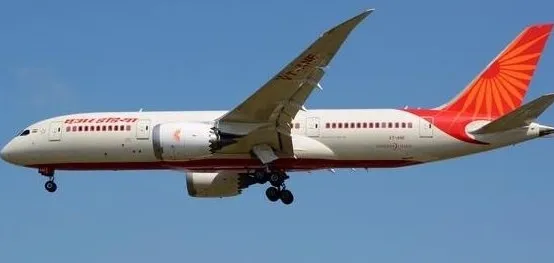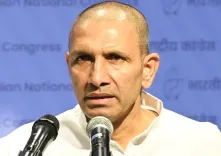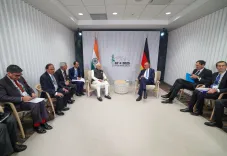Are There Any Major Safety Concerns with Air India’s Boeing 787 Fleet?

Synopsis
Key Takeaways
- No major safety issues found with Air India's Boeing 787 Dreamliner fleet.
- The DGCA conducted thorough safety inspections and compliance checks.
- Air India has implemented enhanced maintenance protocols following the inspections.
- A total of 24 aircraft from the fleet have undergone enhanced safety checks.
- Continued monitoring and inspections are crucial for passenger safety.
Mumbai, June 17 (NationPress) The Directorate General of Civil Aviation (DGCA) announced on Tuesday that no significant safety issues were detected within Air India's Boeing 787 Dreamliner fleet.
The recent assessment of Air India's Boeing 787 fleet showed no alarming safety concerns, according to the aviation authority after discussions with senior Air India executives.
"The latest analysis of Air India's Boeing 787 fleet revealed no significant safety issues. Both the aircraft and their maintenance systems adhered to current safety regulations," the DGCA stated.
Air India's fleet comprises 33 Boeing 787-8/9 aircraft. Furthermore, the DGCA confirmed that 24 of these planes had undergone an "enhanced safety inspection."
The review by the aviation authority also involved a detailed examination of recent operational data, particularly focusing on Air India's wide-body operations, especially the Boeing 787 models.
Last week, the DGCA mandated additional safety inspections of Air India's Boeing 787-8/9 fleet following the tragic crash of the Tata Group airline's flight bound for London mere seconds after take-off from Ahmedabad airport.
As a precautionary measure, the DGCA instructed Air India to implement further maintenance protocols on the Boeing 787-8/9 aircraft fitted with Genx engines immediately, in collaboration with the DGCA's regional offices.
This includes a one-time pre-departure check for flights leaving India starting from June 15, monitoring fuel parameters and conducting system checks, as well as reviewing cabin air compressor and related systems.
Additionally, Air India was required to conduct tests on the electronic engine control systems, operational tests on engine fuel-driven actuators, and checks on the oil system. The airline also needed to verify the serviceability of the hydraulic system and assess take-off parameters, while implementing 'Flight Control Inspections' during transit inspections until further notice.









